TOP 10 JAPANESE FOOD HABITS
Japan’s culinary scene is renowned worldwide for its unique flavors, meticulous preparation, and cultural significance. Japanese food habits extend far beyond mere sustenance; they embody a philosophy that respects ingredients, technique, and the dining experience itself.
1 . Seasonal Eating (Shun)

Seasonality is a cornerstone of Japanese cuisine. Known as “shun,” it emphasizes the use of ingredients at their peak freshness and flavor. Japanese chefs meticulously plan menus around seasonal produce, fish, and even regional specialties. This practice not only ensures optimal taste but also fosters a deep connection with nature and the changing seasons.
2 . Umami Appreciation

Umami, often referred to as the fifth taste alongside sweet, sour, salty, and bitter, holds a special place in Japanese cuisine. From dashi (broth) to soy sauce and fermented foods like miso and soybeans, Japanese cooking is rich in umami-rich ingredients.
3 . Rice as a Staple

Rice, or “gohan,” is the foundation of Japanese meals. Whether served steamed alongside various dishes or as the base for sushi, rice is revered for its versatility and nutritional value. Japanese food habits prioritize the consumption of rice over other grains, reflecting its cultural significance and role as a symbol of sustenance and prosperity.
4 . Minimalism in Presentation

Japanese cuisine is renowned for its minimalist yet elegant presentation. From sushi to kaiseki (traditional multi-course meals), emphasis is placed on simplicity, balance, and attention to detail. Each dish is meticulously arranged to showcase the natural beauty of the ingredients while stimulating the senses visually and aesthetically.
5 . Communal Dining (Itadakimasu and Gochisousama)

Before a meal in Japan, it is customary to say “Itadakimasu,” expressing gratitude for the food about to be consumed. Similarly, “Gochisousama” is said after the meal to thank the host or chef. These expressions of gratitude highlight the communal nature of dining in Japanese culture .
6 . Art of Tea Ceremony (Chanoyu)
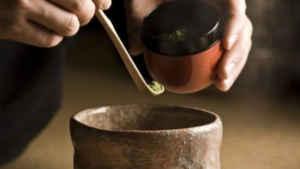
The Japanese tea ceremony, or “chanoyu,” is a highly ritualized practice that celebrates the preparation and consumption of matcha (powdered green tea). Rooted in Zen Buddhism, the tea ceremony emphasizes harmony, respect, and tranquility. Participants engage in a choreographed .
7 . Respect for Ingredients
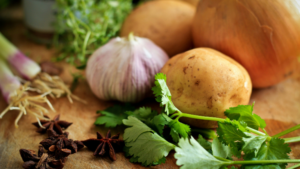
Japanese culinary tradition emphasizes the utmost respect for ingredients, often using simple cooking techniques to highlight their natural flavors. Whether it’s sashimi, tempura, or yakitori, the focus is on showcasing the quality and freshness of the ingredients without overwhelming them with heavy sauces or seasonings.
8 . Eating with Chopsticks
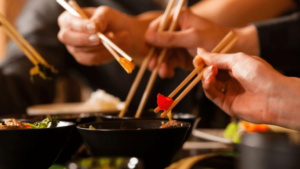
Chopsticks, or “ohashi,” are the primary utensils used for eating in Japan. Beyond their practical function, chopsticks symbolize dexterity, refinement, and respect for tradition. Mastering the art of using chopsticks is considered a sign of cultural proficiency and respect for Japanese customs.
9 . Focus on Health and Balance
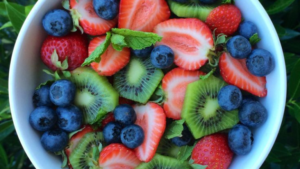
Japanese food habits prioritize balance and nutrition, with an emphasis on fresh, seasonal ingredients and mindful eating. Traditional Japanese meals typically include a variety of dishes, incorporating elements of protein, carbohydrates, vegetables, and seafood.
10 . Continual Pursuit of Excellence

Japanese culinary culture is characterized by a relentless pursuit of excellence and continuous improvement. Whether it’s perfecting a sushi roll, refining a broth, or mastering the art of knife skills, Japanese chefs are dedicated to honing their craft and preserving the rich culinary heritage passed down through generations.
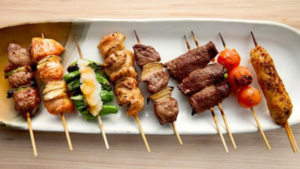
In conclusion, Japanese food habits offer a window into a culinary tradition that values seasonality, simplicity, and mindfulness. From the artful presentation of dishes to the deep respect for ingredients and tradition, Japanese cuisine is a testament to the harmonious relationship between food, culture, and society.
Top 10 pen manufacturing companies Click here
